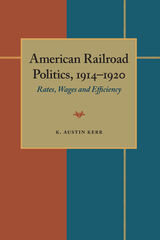

Although everyone agrees on the need to make government work better, few understand public bureaucracy sufficiently well to offer useful suggestions, either theoretical or practical. In fact, some consider bureaucratic efficiency incompatible with democratic government.
Douglas Yates places the often competing aims of efficiency and democracy in historical perspective and then presents a unique and systematic theory of the politics of bureaucracy, which he illustrates with examples from recent history and from empirical research. He argues that the United States operates under a system of “bureaucratic democracy,” in which governmental decisions increasingly are made in bureaucratic settings, out of the public eye. He describes the rational, self-interested bureaucrat as a “minimaxer,” who inches forward inconspicuously, gradually accumulating larger budgets and greater power, in an atmosphere of segmented pluralism, of conflict and competition, of silent politics.
To make the policy process more competitive, democratic, and open, Yates calls for strategic debate among policymakers and bureaucrats and insists that bureaucrats should give a public accounting of their significant decisions rather than bury them in incremental changes. He offers concrete proposals, applicable to federal, state, and local governments, for simplifying the now-chaotic bureaucratic policymaking system and at the same time bolstering representation and openness.
This is a book for all political scientists, policymakers, government officials, and concerned citizens. It may well become a classic statement on the workings of public bureaucracy.
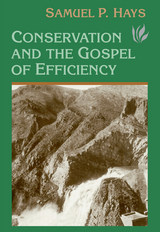

Many assume that the conservation movement was a part of the population uprising against control by the business community—"the people" versus "the interests." Hays’s special perspective shows that it came about rather as an attempt by scientists and technicians to apply their skills to the development and use of natural resources. The resulting conflicts, far from being concerned with unequal distribution of wealth, were struggles for policy control among groups of resource users.
This book defines two conflicting political processes: the demand for an integrated, controlled development guided by an elite group of scientists and technicians and the demand for looser system allowing grassroots control through elected government representatives.
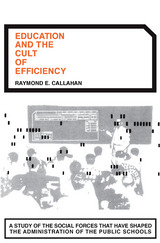

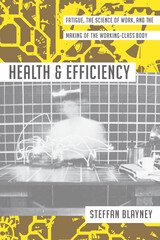
A new model of health emerged in Britain between 1870 and 1939. Centered on the working body, organized around the concept of efficiency, and grounded in scientific understandings of human labor, scientists, politicians, and capitalists of the era believed that national economic productivity could be maximized by transforming the body of the worker into a machine. At the core of this approach was the conviction that worker productivity was intimately connected to worker health.
Under this new “science of work,” fatigue was seen as the ultimate pathology of the working-class body, reducing workers’ capacity to perform continued physical or mental labor. As Steffan Blayney shows, the equation between health and efficiency did not go unchallenged. While biomedical and psychological experts sought to render the body measurable, governable, and intelligible, ordinary men and women found ways to resist the logics of productivity and efficiency imposed on them, and to articulate alternative perspectives on work, health, and the body.
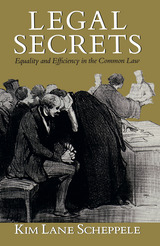
Kim Lane Scheppele answers the question, Which secrets are legal secrets and what makes them so? She challenges the economic theory of law, which argues that judges decide cases in ways that maximize efficiency, and she shows that judges use equality as an important principle in their decisions. In the course of thinking about secrets, Scheppele also explores broader questions about judicial reasoning—how judges find meaning in legal texts and how they infuse every fact summary with the values of their legal culture. Finally, the specific insights about secrecy are shown to be consistent with a general moral theory of law that indicates what the content of law should be if the law is to be legitimate, a theory that sees legal justification as the opportunity to attract consent.
This is more than a book about secrets. It is also a book about the limits of an economic view of law. Ultimately, it is a work in constructive legal theory, one that draws on moral philosophy, sociology, economics, and political theory to develop a new view of legal interpretation and legal morality.
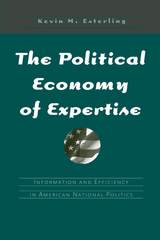
More than mere touts for the interests of Washington insiders, these groups encourage Congress to enact policies that are likely to succeed while avoiding those that have too great of a risk of failure. The surprising result is greater legislative efficiency. The Political Economy of Expertise illustrates that this system actually favors effective and informed decision making, thereby increasing the likelihood that new policies will benefit the American public.
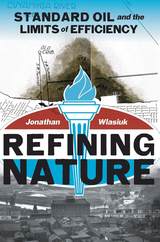
Local governments, guided by a desire to favor the interests of business, deployed elaborate engineering solutions to tackle petroleum pollution at taxpayer expense rather than heed public calls to abate waste streams at their source. Only when refinery pollutants threatened the health of the Great Lakes in the twentieth century did the federal government respond to a nascent environmental movement. Organized around the four classical elements at the core of Standard Oil’s success (earth, air, fire, and water), Refining Nature provides an ecological context for the rise of one of the most important corporations in American history.
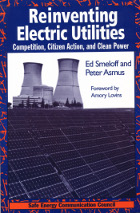
Traditionally protected as monopolies, electric utilities are now being caught in the fervor for deregulation that is sweeping the country. Nearly forty states have enacted or are considering laws and regulations that will profoundly alter the way the electric utility industry is governed. Concerned citizens are beginning to ponder the environmental implications of such a change, and while many fear that the pressure of competition will exacerbate environmental problems, others argue that deregulation provides a tremendous opportunity for citizens to work toward promoting cleaner energy and a more sustainable way of life.
In Reinventing Electric Utilities, Ed Smeloff and Peter Asmus consider the challenges for citizens and the utility industry in this new era of competition. Through an in-depth case study of the Sacramento Municipal Utility District (SMUD), a once-troubled utility that is now widely regarded as a model for energy efficiency and renewable energy development, they explore the changes that have occurred in the utility industry, and the implications of those changes for the future. The SMUD portrait is complemented by regional case studies of Portland General Electric and the Washington Public Power Supply System, the New England Electric Service, Northern States Power, the Electricity Reliability Council of Texas, and others that highlight the efforts of citizen groups and utilities to eliminate unproductive and environmentally damaging sources of power and to promote the use of new, cleaner energy technologies.
The authors present and explain some of the fundamental principles that govern restructuring, while acknowledging that solutions will depend upon the unique resource needs, culture, and utility structure of each particular region. Smeloff and Asmus argue that any politically sustainable restructuring of the electric services industry must address the industry's high capital cost commitments and environmental burdens.
Throughout, they make the case that with creative leadership, open and competitive markets, and the active participation of citizens, this upheaval offers a unique opportunity for electric utilities to lessen the burden of electricity production on the environment and reduce the cost of electric services through the use of more competitive, cleaner power sources.
While neither technological innovation nor the magic of the market will in and of itself reinvent the electric utility industry, the influence of those dynamic forces must be understood. Reinventing Electric Utilities is an important work for policymakers, energy professionals, and anyone concerned about the future of the electric services industry.
READERS
Browse our collection.
PUBLISHERS
See BiblioVault's publisher services.
STUDENT SERVICES
Files for college accessibility offices.
UChicago Accessibility Resources
home | accessibility | search | about | contact us
BiblioVault ® 2001 - 2024
The University of Chicago Press









